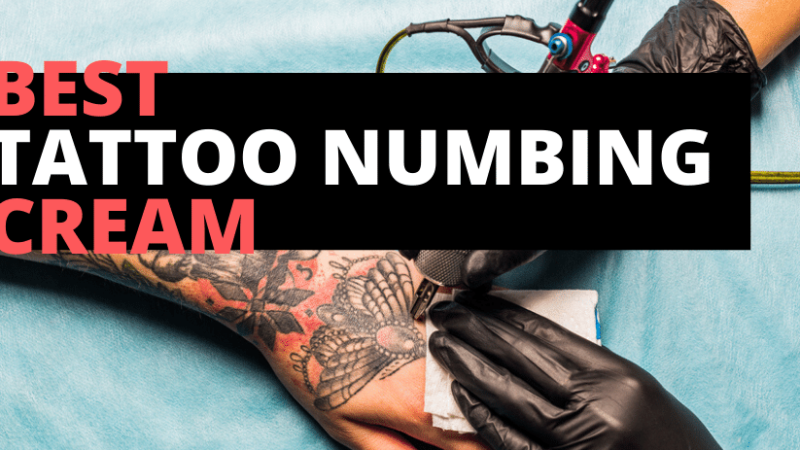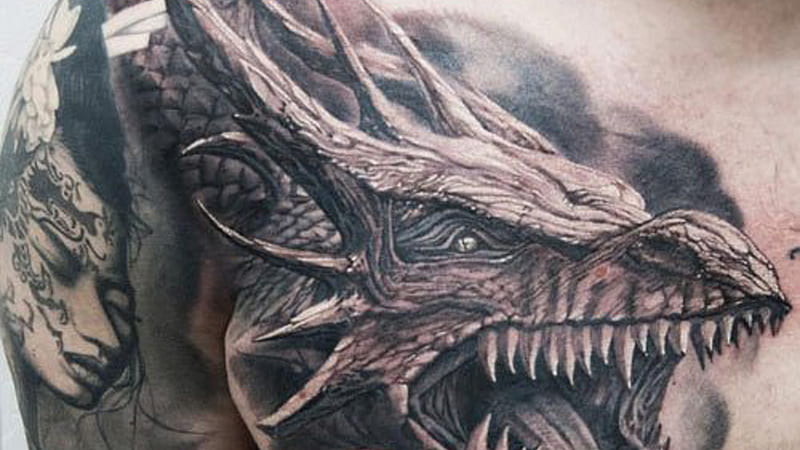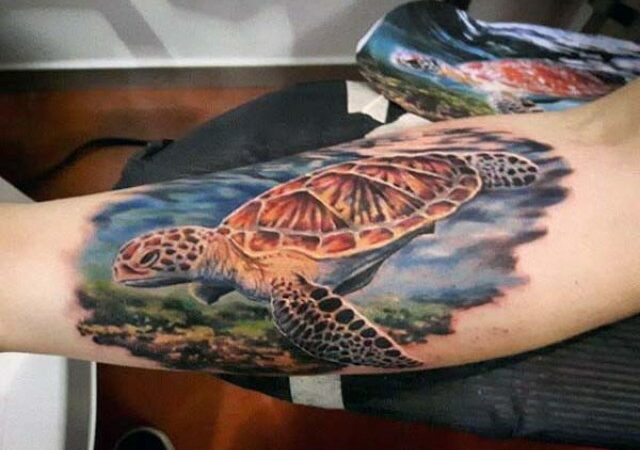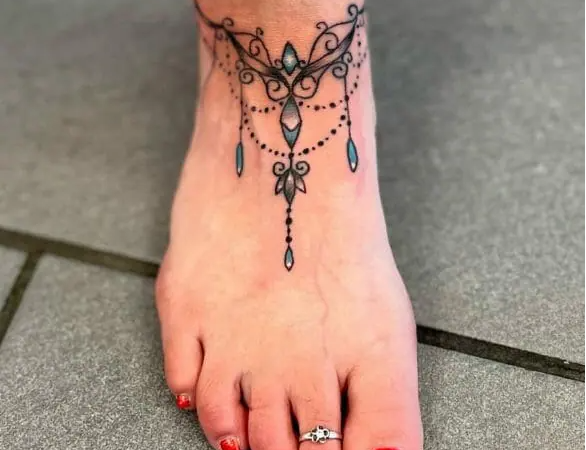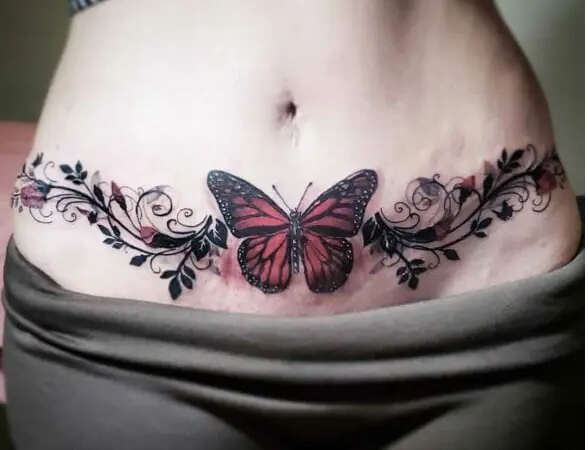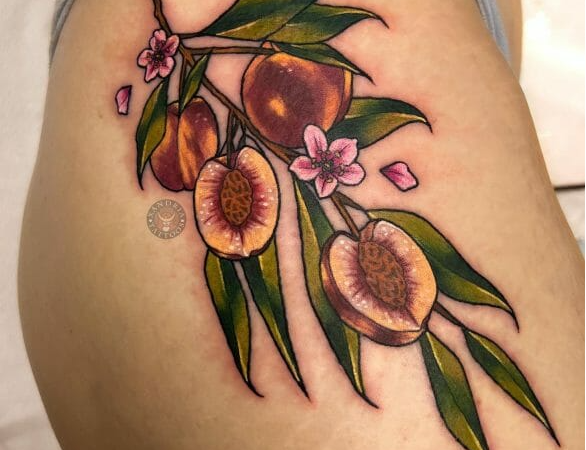The Art and Science of Tattoo Peeling: What You Need to Know

Tattoo Peeling – Tattoos are a form of self-expression, art, and personal identity for millions of people worldwide. The process of getting a tattoo is undoubtedly exciting, but it doesn’t end with the needle leaving your skin. Tattoo aftercare is a crucial step in ensuring the longevity and vibrancy of your ink. One significant aspect of tattoo aftercare is the phenomenon known as “tattoo peeling.” In this blog post, we’ll dive deep into what tattoo peeling is, why it happens, and how to care for your tattoo during this phase properly.
Understanding Tattoo Peeling
Tattoo peeling is a natural and temporary part of the tattoo healing process. It typically occurs a few days to a week after getting a tattoo. During this phase, the top layer of your skin, which has been traumatized by the tattoo needle, begins to shed. This is normal and a sign that your tattoo is healing properly. However, it’s essential to understand why this peeling occurs and how to manage it.
Why Does Tattoo Peeling Happen?
- Skin Regeneration: Tattoo peeling happens because your skin is regenerating itself. When you get a tattoo, the needle pierces the top layer of your skin (the epidermis) and deposits ink into the lower layer (the dermis). Your body recognizes this as an injury and starts the healing process. During peeling, the old, damaged skin cells are replaced with new ones.
- Lymphatic Response: Your lymphatic system removes excess ink and healing fluids from the tattooed area. This process can cause some of the ink to be pushed to the surface, making it appear as though the tattoo is fading or peeling.
- Dryness: As your tattoo heals, the skin covering it may become dry and flaky. This dryness can lead to the appearance of peeling as the dead skin cells separate from the healthy skin underneath.
How to Properly Care for a Peeling Tattoo?
- Keep It Clean: Maintain good hygiene by washing your tattoo gently with mild, unscented soap and lukewarm water. Avoid scrubbing or using harsh products that can irritate the healing skin.
- Moisturize: Apply a specialized tattoo aftercare lotion or unscented moisturizer to keep the skin hydrated. Moisturizing helps prevent excessive dryness and can reduce the appearance of peeling.
- Avoid Picking: It can be tempting to pick at peeling skin, but doing so can damage your tattoo and increase the risk of infection. Let the peeling happen naturally, and resist the urge to scratch or peel it yourself.
- Stay Out of Direct Sunlight: UV rays from the sun can fade and damage your tattoo during the healing process. Keep your tattoo covered or use a broad-spectrum sunscreen with a high SPF when going outside.
- Stay Hydrated: Drinking plenty of water supports overall skin health, helping your tattoo heal more effectively.
- Patience is Key: Tattoo peeling is a temporary phase. It may last for several days to a couple of weeks, depending on your skin type and the size and complexity of your tattoo. Allow your body the time it needs to heal properly.
When to Seek Professional Advice?
While tattoo peeling is a normal part of the healing process, there are cases when it’s essential to seek professional advice:
- Infection Signs: If you notice signs of infection, such as pus, excessive redness, severe pain, or fever, contact your tattoo artist or a healthcare professional immediately.
- Allergic Reactions: If you experience unusual itching, swelling, or hives around the tattooed area, it may be an allergic reaction to the ink or aftercare products. Seek medical advice promptly.
Conclusion
Tattoo peeling is a natural and temporary phase in the tattoo healing process. It’s a sign that your body is actively working to heal the tattooed area. By following proper aftercare guidelines, you can help ensure that your tattoo heals beautifully and retains its vibrancy for years. Patience and gentle care are the keys to a successful tattoo healing process. Embrace the journey, and your tattoo will emerge as a stunning piece of art on your skin.
FAQs
FAQ: What is climate change?
Answer: Climate change refers to significant, long-term alterations in global weather patterns and temperatures. It is primarily caused by human activities, such as burning fossil fuels and deforestation, leading to an increase in greenhouse gases in the atmosphere, which traps heat and results in rising global temperatures.
FAQ: How does vaccination work?
Answer: Vaccination introduces a weakened or inactivated form of a disease-causing microorganism or a piece of it (antigen) into the body. This stimulates the immune system to produce antibodies, which can recognize and fight the actual pathogen if encountered in the future, providing immunity to the disease.
FAQ: What is artificial intelligence (AI)?
Answer: Artificial intelligence (AI) refers to developing computer systems or machines that can perform tasks that typically require human intelligence, such as problem-solving, learning from data, language understanding, and decision-making. AI technologies include machine learning, natural language processing, and neural networks.
FAQ: What is the difference between a virus and a bacteria?
Answer: Viruses and bacteria are both microorganisms, but they are fundamentally different. Bacteria are single-celled organisms that can live and reproduce independently. Viruses, on the other hand, are much smaller and require a host cell to replicate. Bacteria can be treated with antibiotics, while viruses are typically combated with vaccines or antiviral medications.
FAQ: How can I improve my cybersecurity?
Answer: Improving cybersecurity involves taking various precautions:
Use strong, unique passwords and consider using a password manager.
Keep your software, operating system, and antivirus programs up to date.
Be cautious of suspicious emails, links, and attachments (phishing).
Enable two-factor authentication for online accounts.
Regularly back up important data to offline or cloud storage.
Educate yourself about cybersecurity best practices to stay vigilant online.
